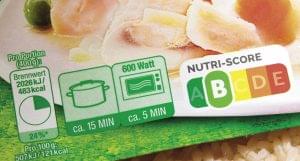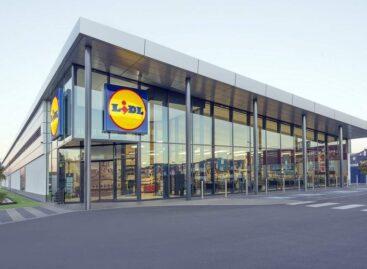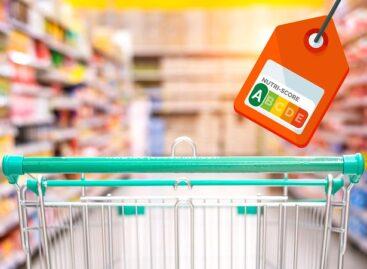The Nutri-Score story continues
As there is no professional forum for large-scale harmonisation in the field of front-of-pack (FOP) labelling of food products in Hungary, let’s summarise what happened in the past and what the future scenarios can be, so that food companies can prepare for the system’s introduction better.
When will there be new legislation?

Guest writer:
Réka Szöllősi
food policy analyst
elelmiszervilag.hu
At the moment the European Union’s legislative work is in a preparatory phase. Next the recommended changes in the current food labelling rules will be discussed in the European Council by the representatives of the member states. The debate ends when there is unanimous support for the drafted recommendations. As for the EU food labelling regulation that is about to be modified now, it took six years to create, so it is rather likely that the current draft won’t become legislation sooner than 1-2 years from now. Let’s not forget that the related issues need to be decided on with Farm2Fork strategy, biodiversity, circular economy and consumer protection strategy considerations in mind – perhaps for the first time in the history of the EU’s food legislation, a real holistic approach will be used in making the new rules.
What is happening with Nutri-Score?
Last year France – they invented the Nutri-Score system – conducted a survey about how well the system is known among adults and teenagers. The results revealed that thanks to the government’s educational campaigns and more than 800 companies using the label on their products, more than 90% of French consumers are familiar with the Nutri-Score logo. What is more, a large part of them can interpret their meanings and would like the system to become mandatory. Since the system’s launch in 2017, several scientific studies have proved that the logos work very well in influencing buying decisions. Right now the logo is being officially recommended in 6 European countries: Belgium, Germany, Luxemburg, the Netherlands, Spain and Switzerland. In February 2021 these countries established a transnational coordination mechanism, which operates a governing and a scientific committee for promoting the Nutri-Score system’s use.

A Nutri-Score logót jelenleg 6 európai országban alkalmazzák hivatalos ajánlásként
What are the French system’s opponents doing?
Meanwhile the opponents of the Nutri-Score system aren’t resting on their laurels either. Italy is working hard popularising its own NutrInform system. Last time the European Food Safety Authority (EFSA) published a statement on nutrient profiles the Italians said: EFSA’s claims make it clear that the French system isn’t good. As a reaction Serge Hercberg – the expert who developed Nutri-Score – and a representative of the European Consumer Organisation (BEUC) declared that the contrary is true, as EFSA’s statement didn’t refer to the operability of the different systems, instead it defined the group of problematic nutrients that must be taken into consideration when creating nutrient profiles (and other rules), and these are exactly the ones included in Nutri-Score’s algorithm. Many large corporations and lobby groups such as COPA-COGECA are also trying to prevent the proliferation of the French system. One thing is sure: scientific evidence will play a key role in legislative work, so both pro-NutriScore groups and the system’s opponents have to prepare for such debates.
What about the situation in Hungary?
In Hungary some are in favour of Nutri-Score, while others are against it. At the moment it isn’t clear where the government stands in this question. Probably we have to wait for the official position until the mandate for the EU talks is ready. Until then Hungary’s food industry must already face the expectation that consumers want food labelling systems which are easier to understand, and can help to compare products belonging to the same category. What is more, nutrition labelling is only the beginning, as soon the same expectations will materialise in connection with the environmental footprint of food products… //
This article is available for reading on pp 168-169 of Trade magazin 2022.08-09.
Related news
Lidl Spain To Implement Nutri-Score On All Products by 2026
🎧 Hallgasd a cikket: Lejátszás Szünet Folytatás Leállítás Nyelv: Auto…
Read more >Related news
GDP growth in OECD member countries slowed to 0.3 percent in the last quarter of last year
🎧 Hallgasd a cikket: Lejátszás Szünet Folytatás Leállítás Nyelv: Auto…
Read more >Change in Rossmann Hungary’s leadership: Kornél Németh decided to move towards new challenges in 2026
🎧 Hallgasd a cikket: Lejátszás Szünet Folytatás Leállítás Nyelv: Auto…
Read more >








